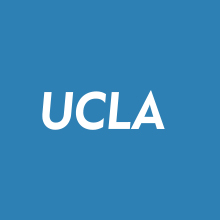What were your favorite philosophy courses at UCLA?
- Intro to Ethics (22)
- Society and Morals (150)
- Feminist Theory (187)
Are there any philosophical issues, readings, or topics that have stayed with you since graduation?
I am interested in the questions that typically occupy philosophers of religion. But, since those questions are not always unique to that sub-field, my basic familiarity with epistemology and metaphysics, and a decent grounding in Kant, have enabled me to study further on my own.
Have you read any philosophy recently that you would recommend?
- Robert Adams, “Love and the Problem of Evil.”
- Augustine, “Confessions,” Chapter on Memory
- Howard Thurman, “Jesus and the Disinherited,” and “The Search for Common Ground.”
What was your first job or endeavor after UCLA?
I worked part-time as an analyst in an economic consulting firm and then went to law school. My first job out of law school was a federal clerkship.
What lessons or skills from philosophy do you use in your career?
My study of philosophy, and, especially analytic philosophy as taught at UCLA, made analyzing problems in terms of logically-related principles second nature. That easy disposition facilitates everything from one’s first excursions into Excel to keeping the hundredth hour of writing a legal brief on track despite being mired in Part III.A.3.i.
Do you have advice for current students or recent graduates about how to take advantage of and continue their philosophical education?
The patience and concentration that unravelling a philosophical problem demands are bedrock strengths the graduate takes with her into any new field.
I have strengthened my philosophical education in part by applying it in new humanities disciplines. A UCLA philosophy graduate, in particular, is well-armed to approach many discussions in non-analytic disciplines, such as literature, history, and theology, where the recent history of the discipline has been largely shaped by close attention to the use of language.


